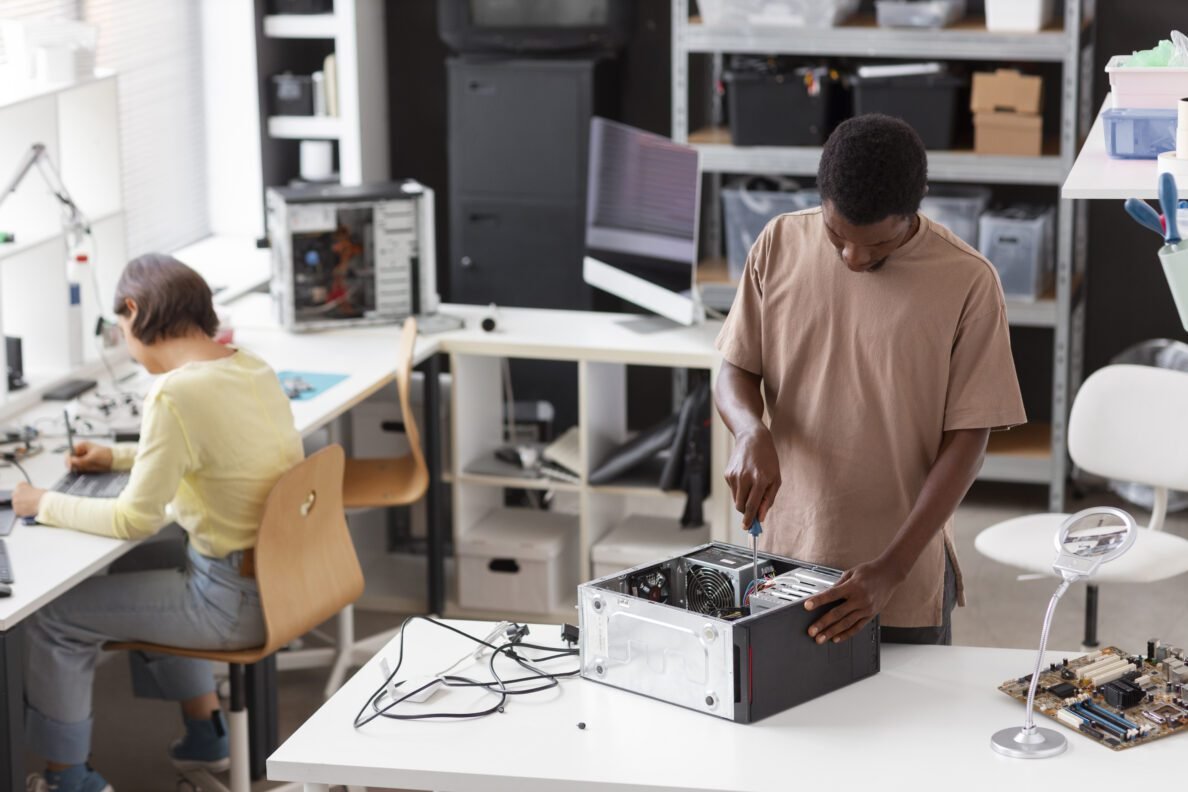Empowering the Future of Education through Technology: The Role of IT Leaders


In an era where technology shapes nearly every aspect of our lives, IT leaders are more crucial than ever in preparing students for the future. The influence of technology on the workforce spans all industries, including STEM, AI, and even esports. Not only does it create new career opportunities, but it has also revolutionized how students engage with learning, build skills, and develop critical thinking abilities.
“Exposing students to computer science and advanced technology is essential, not just for future careers but because it reshapes their connection to education itself,” says Mat Holley, Esports Program Manager at MSI. “Students who are more engaged achieve better attendance, higher grades, and are better prepared for college and the job market. The enthusiasm for learning is contagious.”
Collaborating for Success: IT Leaders and Educational Partnerships
While school boards are driving these innovative programs, they cannot accomplish this transformation on their own. Successful implementation requires collaboration with IT leaders, education specialists, and technology professionals. Together, they ensure that programs are cost-effective and future-proof by delivering the right technology, expertise, and activities.
The choice of hardware and software is crucial for supporting technology-driven education. For example, Holley highlights his work with an extracurricular club in Chula Vista, San Diego, where students engage in video design, broadcasting, AI, and music creation. Using MSI’s Vector GP and Raider GE laptops, powered by Nvidia graphics and Intel processors, students gain hands-on experience. This initiative also supports the largest high school esports program in the U.S., the Kern High School District Esports League.
“I’ve partnered with schools at different stages of their journey,” Holley explains. “Some are leveling up their hardware to match student progress, while others are building programs from scratch. This uncharted territory is gaining momentum as schools share knowledge and resources.”
The Impact of Esports on Students

Esports has proven to be a game-changer in education, especially for students who may not traditionally excel in other sports or extracurricular activities. It not only fosters educational and social development but also attracts students who have never participated in clubs before. This includes girls who feel left out in science and math classes, as well as BIPOC students seeking bigger opportunities. Esports builds their confidence and often encourages them to pursue careers in technology, particularly computer science.
“There are no barriers to entry in gaming or computer science,” Holley says. “Esports connects students to broader tech clubs like design, broadcasting, and journalism. Formerly disenfranchised kids are discovering their passion through these programs.”
Building Sustainable, Future-Ready Learning Environments
While esports programs have numerous benefits, school districts face challenges, particularly around budget constraints and integrating new technology. Holley and MSI work with schools to ensure their hardware meets both budget and long-term specifications. MSI’s collaboration with educational institutions ensures that their systems are seamlessly integrated, from security to cloud adoption.
“As esports grows in schools, we’ve worked to meet specific needs, from price points to warranties,” says Holley. “We’ve introduced professional-grade hardware to give students even more technology to explore, from gaming to other STEM areas.”
IT leaders are key to building sustainable tech infrastructures. The size and efficiency of hardware have improved, making it easier for IT teams to manage student computers. Districts still face challenges with legacy systems, but Holley emphasizes the importance of future-proofing and working closely with IT departments.
“Integrating new hardware with existing systems and migrating securely to the cloud is a top priority,” Holley adds. “We collaborate directly with IT departments to ensure that security standards are met and that systems are scalable for the future.”
Choosing the Right Technology for Education

IT leaders must consider hardware longevity, particularly as product life cycles in consumer technology are relatively short. Schools benefit from working with dedicated educational technology providers, ensuring that they stay updated with the latest advancements and have access to easily upgradable hardware.
MSI’s offerings for educational institutions include the Cubi NUC and DP21, which feature Intel vPro and Windows Autopilot to simplify management, enhance security, and streamline deployments. Thunderbolt 4 technology ensures fast connectivity and real-time data processing for AI and machine learning applications. Additionally, the compact size of these devices makes them ideal for flexible installations with a strong performance-to-footprint ratio.
MSI also provides specialized STEM, gaming, and content creation computers such as the DP180, CreatorPro, and Raider GE series laptops. These systems feature dedicated graphics hardware to accelerate demanding applications and offer expandability for future upgrades.
The Future of Educational Technology
Veteran resellers and manufacturers are essential partners for schools, helping decision-makers secure the best hardware and software solutions for their students. Keeping IT teams informed about upcoming technology helps ensure students have every opportunity to succeed with the latest tools available.
“We’re paving the way for students to succeed in the future,” Holley concludes. “Technology, including gaming hardware, plays an integral role in this journey. IT leaders must be creative and work with manufacturers and resellers to push these initiatives forward.”
For a deeper look into the technology solutions transforming today’s educational landscape, explore this resource.
By fostering collaboration and leveraging cutting-edge technology, IT leaders are not just preparing students for the future—they’re shaping it.
Don’t miss out! Check out my latest newsletter on Ghana’s Inflation Jumps to 21.5% Amid Rising Food Prices After Five-Month Decline to stay informed on the economic trends affecting us all















